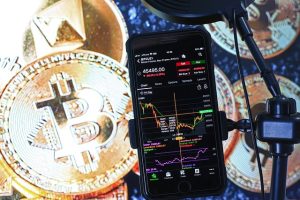 Influence Of Kusama on Decentralized Language Learning Platforms
Influence Of Kusama on Decentralized Language Learning Platforms
Decentralized language learning platforms have emerged as a transformative force in education, offering unique opportunities for language learners worldwide. This article explores the profound influence of Kusama, a blockchain technology, on these decentralized platforms. While investing in crypto might seem complex, innovations like the automated bot, https://bitbot-app.com/ have made it more accessible to the average person.
Kusama’s Influence on Language Learning Platforms
Kusama, a prominent blockchain technology, has exerted a significant influence on language learning platforms, revolutionizing the way individuals acquire new languages. Through its unique features and principles, Kusama has played a pivotal role in driving the decentralization of language education.
Decentralized language learning platforms leverage the power of Kusama to create an ecosystem that connects language learners worldwide in a peer-to-peer manner. Unlike traditional centralized platforms, these decentralized platforms allow learners to interact directly with native speakers of their target language, fostering authentic language exchanges and cultural immersion.
One of the key aspects of Kusama’s influence is its ability to facilitate transparent and secure transactions through the use of smart contracts. Language learners can engage in language tutoring sessions, language exchanges, or even purchase learning materials directly from educators or content creators, all executed on the blockchain with trust and accountability.
Several successful language learning platforms have emerged, powered by Kusama’s decentralized infrastructure. These platforms have witnessed significant user adoption and positive feedback from learners who appreciate authentic language interactions, transparency in transactions, and the opportunity to actively contribute to the learning community.
A noteworthy case study is the development of a specific language-learning community on the Kusama network. This case study delves into user engagement, feedback, and the impact on language proficiency within this community. By examining the experiences and outcomes of learners within this ecosystem, we gain insights into the effectiveness of decentralized language learning platforms in fostering language acquisition.
Read also: Terra classic usdustc surged 60 in a week
Decentralized Language Learning Platforms
Decentralized language learning platforms represent a paradigm shift in the way language education is delivered and experienced. These platforms harness the power of blockchain technology, with Kusama at the forefront, to create a decentralized ecosystem that offers numerous benefits to language learners.
At the core of decentralized language learning platforms is the concept of peer-to-peer interactions. Unlike traditional language learning platforms that rely on a central authority, decentralized platforms connect language learners directly with native speakers and language enthusiasts. This direct interaction allows learners to engage in authentic conversations, practice pronunciation, and gain cultural insights, fostering a more immersive language learning experience.
 Influence Of Kusama on Decentralized Language Learning Platforms
Influence Of Kusama on Decentralized Language Learning Platforms
Smart contracts play a crucial role in facilitating transparent and secure transactions within decentralized language learning platforms. These self-executing contracts ensure that payments for language tutoring sessions, language exchange partnerships, or access to learning materials are carried out seamlessly and verifiably. Learners can have confidence in the fairness and reliability of these transactions, eliminating the need for intermediaries and reducing associated costs.
Gamification is another key component of decentralized language learning platforms. By incorporating game-like elements, such as badges, levels, and rewards, these platforms motivate learners to actively participate and progress in their language learning journey. Learners can earn tokens or incentives for achieving language milestones, completing language challenges, or receiving positive feedback from peers and educators. This gamified approach adds an element of fun and engagement, making language learning a more enjoyable and motivating experience.
Decentralized language learning platforms also foster a sense of community and collaboration among learners. Through forums, chat groups, and community events, learners can connect with like-minded individuals from diverse backgrounds and cultures. This community aspect provides opportunities for language exchanges, peer support, and sharing resources, creating a rich learning environment where learners can learn from each other’s experiences and expand their linguistic and cultural knowledge.
Furthermore, decentralized platforms empower learners to become active participants and contributors to the language learning ecosystem. Learners can create and share their learning materials, contribute to language courses, or even provide tutoring services to fellow learners. This democratization of content creation and knowledge-sharing ensures a dynamic and constantly evolving repository of resources, tailored to the needs and interests of the language learning community.
Conclusion
Kusama’s influence on decentralized language learning platforms has ushered in a new era of language education. By enabling peer-to-peer interactions, transparent transactions, gamification, and community collaboration, Kusama empowers language learners to engage authentically, learn effectively, and actively shape their language learning experience. These platforms offer personalized, immersive, and community-driven language acquisition opportunities, revolutionizing the way we learn languages in a decentralized world.
Related